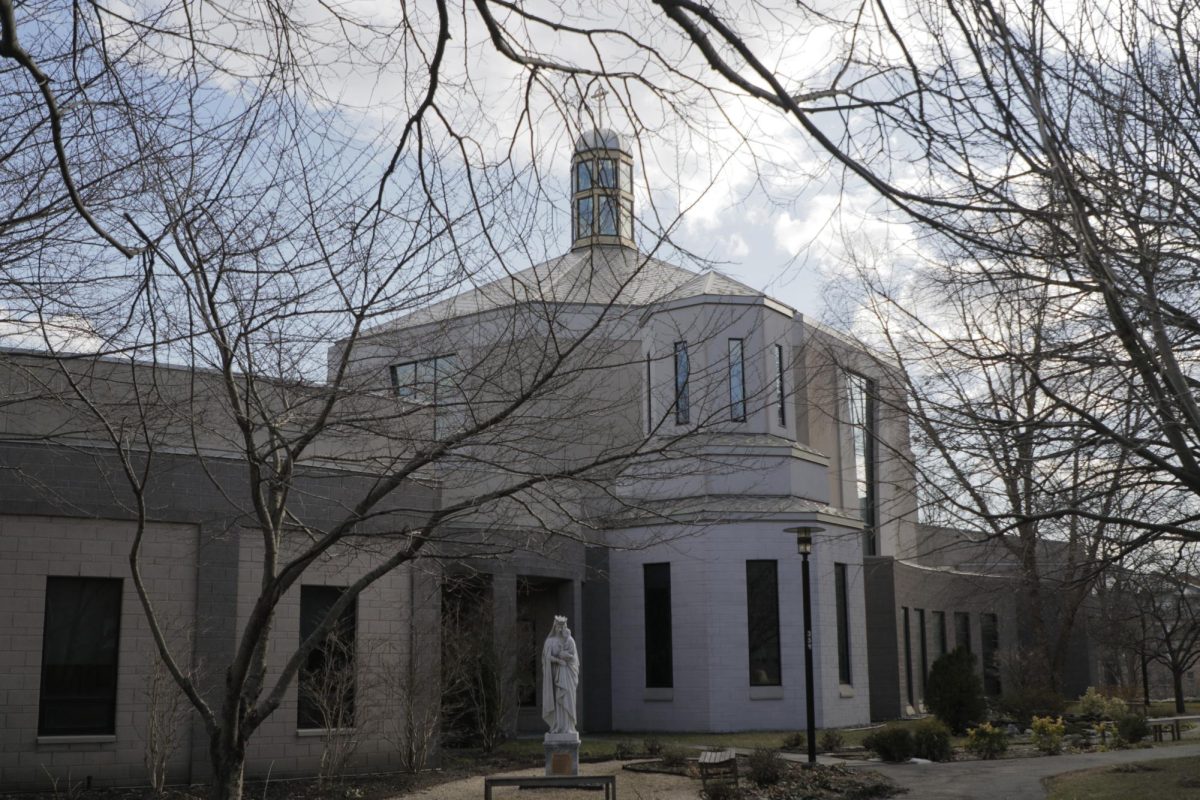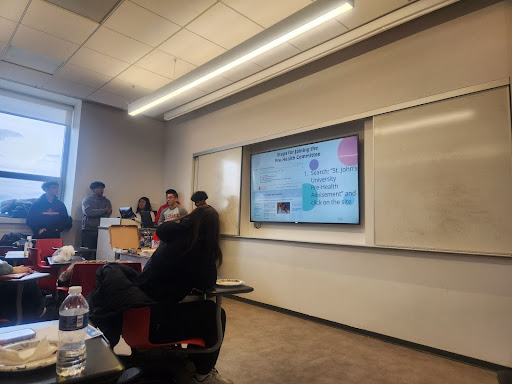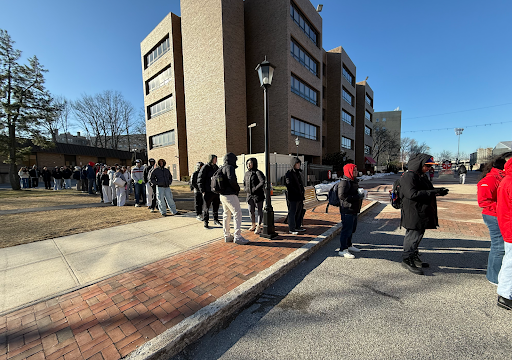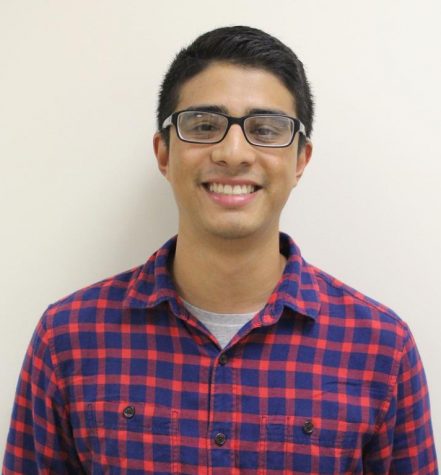On April 27, St. John’s hosted Conflict in Syria: Perspectives from a Missionary Priest. Speaker Father Rodrigo Miranda, a Chilean missionary from the Institute of the Incarnate Word, spoke about his experiences in the Middle East during his ten years of work in the region.
Father Miranda began his work as a missionary in Egypt and the Gaza Strip in 2006, only one month after being ordained. After a short stint in Jordan, Fr. Miranda later moved on to Aleppo, Syria.
One of the many things he noticed about the Middle East was the importance of religion in the region, where it was a prominent aspect of daily life. As Islam is the dominant faith in the Middle East, Fr. Miranda and his fellow missionaries were minorities that believed in Christianity.
Fr. Miranda spoke about the discrimination and harassment he and other Christians faced daily. However, attacks and persecution were more severe after war broke out.
Speaking about Aleppo prior to the outbreak of the civil war in Syria, Fr. Miranda said, “Aleppo was a beautiful city when we arrived, and yet three months later, it was entirely different.”
The civil war began in 2011, and eventually, attacks became a near-daily occurrence.
According to Fr. Miranda, attacks were heavier on Feast celebrations, such as Easter and Christmas.
“I witnessed some of the most horrendous religious persecution,” he said.
As Fr. Miranda continued his speech, he showed videos of missile launches and explosions, as well as images of injured and dead Christians who were attacked by radicals. He told a story where a Christian cemetery was deliberately destroyed in order to prevent burials.
He said, “My church opened land to serve as a cemetery where burials occurred daily.”
Seemingly, there were no protected age groups, as young and old were killed, along with Christian missionaries.
“There was a case of a priest missionary who was kidnapped and ransom demanded. His family sent money but the missionary was killed, dismembered and sent back in pieces,” Fr. Miranda said. “A priest was considered lucky if he only suffered broken arms, legs and teeth. It was not uncommon for them to be beaten inches away from death.”
There were even instances of Christians being crucified in public.
“Youth were constantly being killed,” he said. “There were many that were killed waiting for the bus, in hospitals, during holy days and even during summer camps held by my church.”
Graduate student Gary Johnson responded, “I’m shocked. I didn’t realize that Christians were being persecuted in that way. Hearing about the crucifixion of Christians was the most disturbing.”
“These are some of the examples of the hate and abuse handed down onto the Christian communities in the Middle East. These instances aren’t just statistics or pure numbers, but real life people,” added Fr. Miranda.
Regarding international aid being afforded to the victims in Syria, Fr. Miranda said, “It is either non-existent, or ineffectual. We have not received much help from the international community.”
Fr. Miranda was also quick to mention his bias.
“I am a Christian, therefore I speak about my experiences as a Christian. This isn’t just a Christian problem, many, many Muslims are being killed as well,” he said.
In response to Fr. Miranda’s personal story, junior Reema Al-Hijazin said, “It was heavy but something we needed to hear. I’m glad to have had the opportunity to listen to him speak on his experiences.”
Graduate student Nur Gorayev, who helped coordinate the event agreed, “This first hand experience has a deeper impact than just hearing about it on the news. Maybe, it’ll spark an impact on us to find a solution for these problems.”
“We have to give thanks for the life that we have,” said Fr. Miranda, “The way to give thanks is to do good for others, to do good for the community.”









